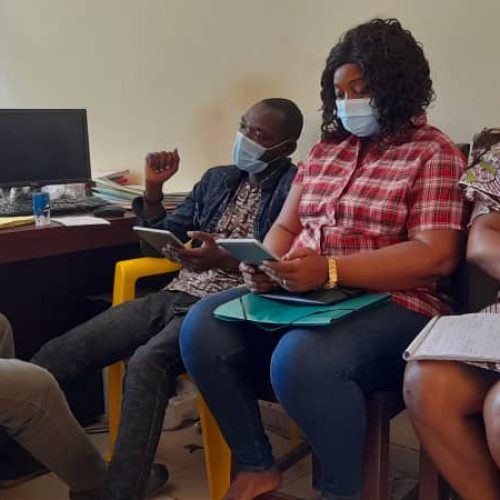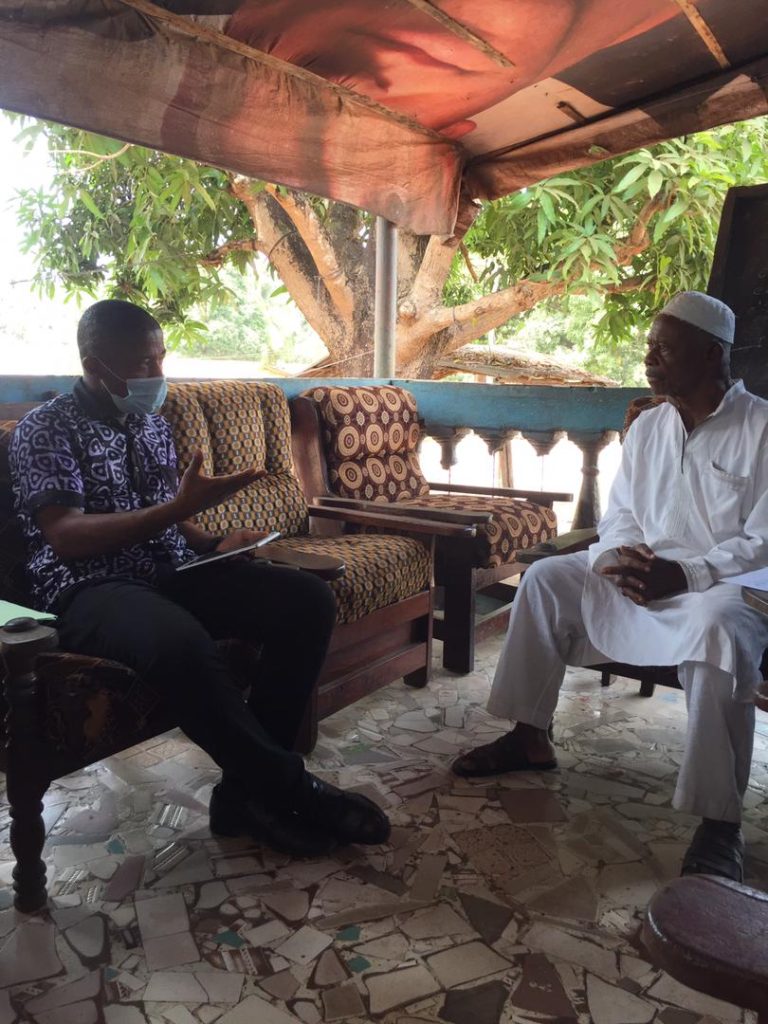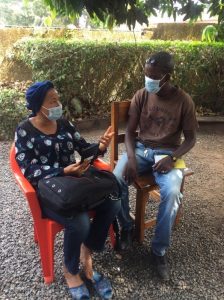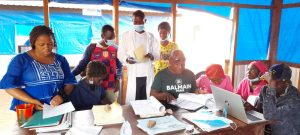Implementation Research on the National Community Health Policy in Guinea
The Challenge
Guinea’s health system faces significant challenges, including understaffing, inadequate infrastructure, and poor management. Guinea is currently grappling with how to continue providing essential services to communities while responding to the aftermath of epidemic outbreaks such as Ebola and the COVID- 19 pandemic. To improve community health, the Ministry of Health (MOH) launched the National Community Health Policy in 2018. The centerpiece of the policy is to recruit, train, and salary Community Relays and Community Health Workers (CHWs). However, myriad financing and governance changes are required to create the enabling environment for these health workers to be effective. The Government of Guinea, partners, and donors have invested significant resources in the country’s community health program and decentralization efforts. However, there has not been any implementation research specifically examining the intersection of these two complex health systems changes.


The Opportunity
Four years into the launch of the National Community Health Policy, the Directorate of Community Health and Traditional Medicine and its partners recognize that this is an opportune moment to use iterative learning and adaptation to improve the policy’s rollout. Although the new policy and scale-up has been successful in many facets, key stakeholders report challenges with implementing the policy, including the need for sustainable financing for communes, weak local governance, and poor transfer of skills and capacity building at the decentralized levels. These challenges have not been systematically reviewed across the country. The Accelerator is carrying out implementation research to help key policy and decision-makers and key community health actors better understand the barriers and opportunities in effectively implementing the National Community Health Policy.
Our Work
The Accelerator is working in partnership with the University Gamal Abdel Nasser of Conakry and the Centre National de Formation et de Recherche en Santé Rurale de Maferinyah (Maferinyah Center for Training and Research in Rural Health), based in Guinea, to design and implement and implementation research study. The study is designed with a decision space approach, which refers to carefully mapping decisional authority and capacity at decentralized levels of government and the health system. In close collaboration with USAID and the Directorate of Community Health in the MoH in Guinea, the Accelerator is carrying out this implementation research study in four of the seven regions of Guinea, conducting a sequenced data collection consisting of a quantitative survey followed by qualitative in-depth interviews and focus group discussions. Further information on the study can be found through PLOS ONE: Implementation research protocol on the national community health policy in Guinea: A sequential mixed-methods study using a decision space approach.

Our Findings
Quantitative data collection for this activity occurred in early 2022 in 27 communes that were purposefully selected across Guinea, including communes in which the National Community Health Policy is fully implemented, partially implemented, and not yet being implemented. The quantitative analyses found that in the 40 pilot “convergence communes”, MCH indicators improved after policy implementation, a positive effect that was not found in other commune types. However, this increase was not maintained over time. In addition, the COVID-19 pandemic decreased MCH service utilization in all commune types. Analyses found that knowledge was consistently high for community health workers (CHWs) across commune types, however, there was not reliable financing, community support, or other enabling factors to support CHWs. Contrary to our hypothesis, we found that communes fully implementing the policy according to the design did not have a higher level of decision space. However, we did find higher capacity and accountability in some types of communes implementing the policy.
Discussions on the quantitative findings with the Guinea Ministry of Health and other stakeholders have raised further questions that will be explored in the qualitative phase in early 2023.
The results and recommendations that emerge from this implementation research, which are projected to be finalized and disseminated in Summer 2023, will be used to:
- Inform revisions to the National Community Health Policy and the development of the new policy (2023-2027), currently under development.
- Target capacity-strengthening efforts to actors at different levels of the health systems and in other implementation regions.
- Highlight bottom-up and top-down accountability issues for improving the responsiveness of the community health program to communities’ needs.
News & Resources
Guinea Implementation Research Protocol Published in PLOS ONE
Guinea Implementation Research Protocol Published in PLOS ONE In this...
Read MoreImplementation Research Helps Guinea Assess Gaps and Opportunities in the National Community Health Strategy
Authors: Alexandre Delamou, Fassou Mathias Grovogui, Rachel Gates, Lior Miller,...
Read MoreIntegrated Health Systems Strengthening Support Aims to Improve Community Health Outcomes in West Africa
Existing efforts to improve community health outcomes in West Africa...
Read More






